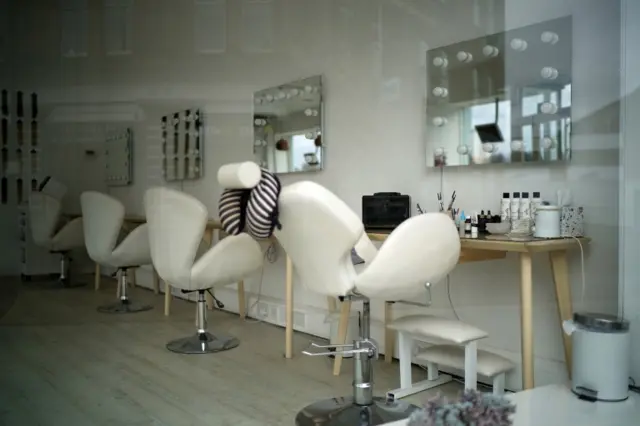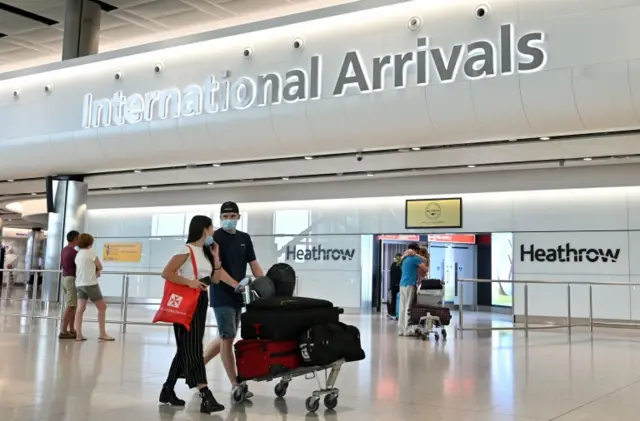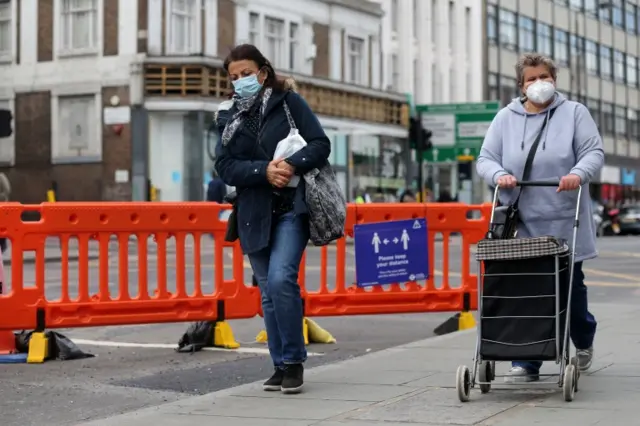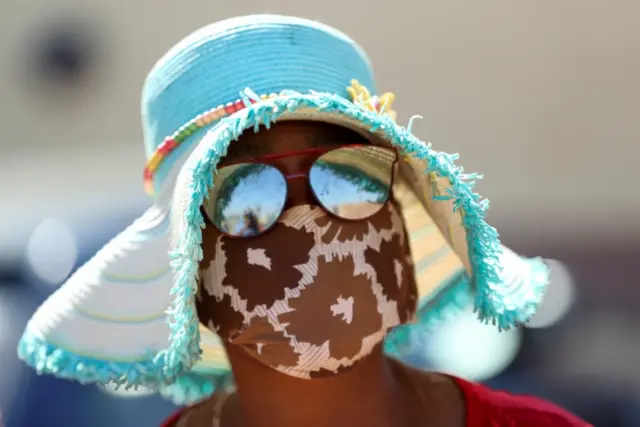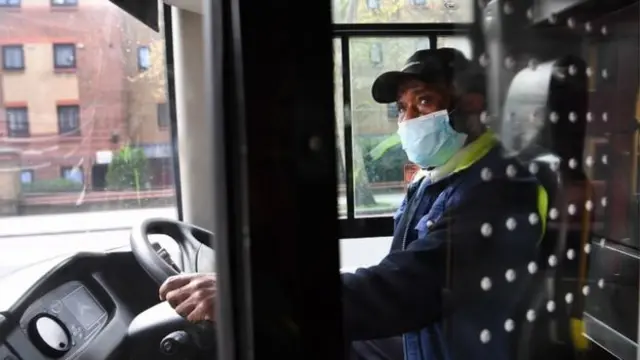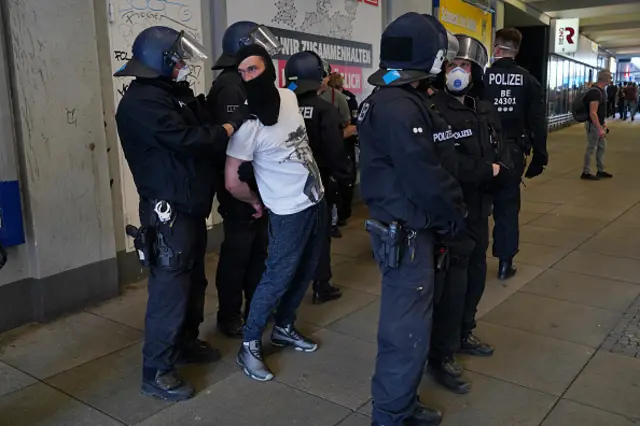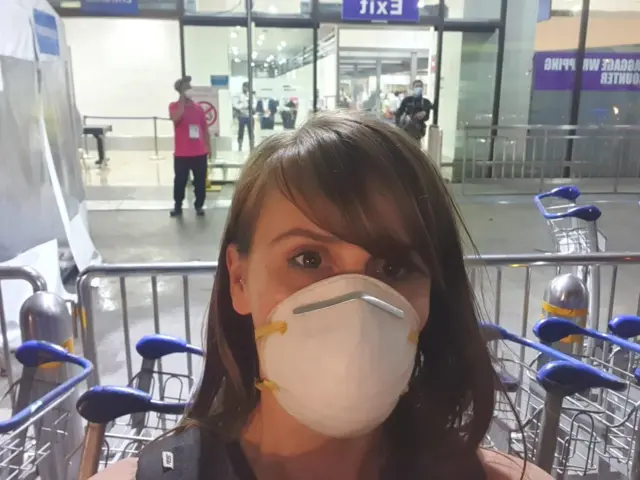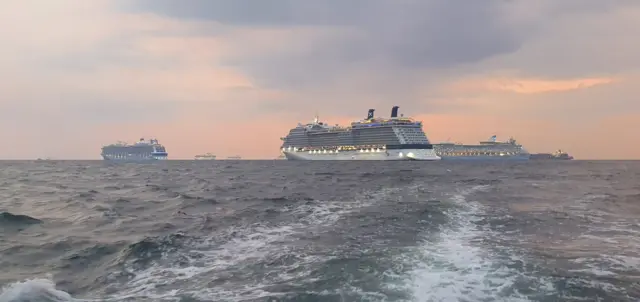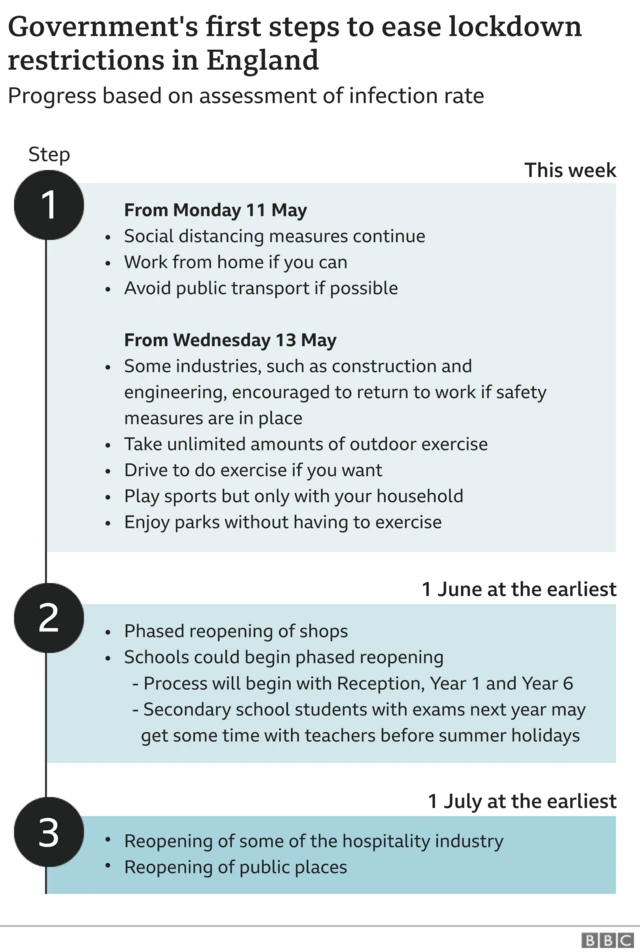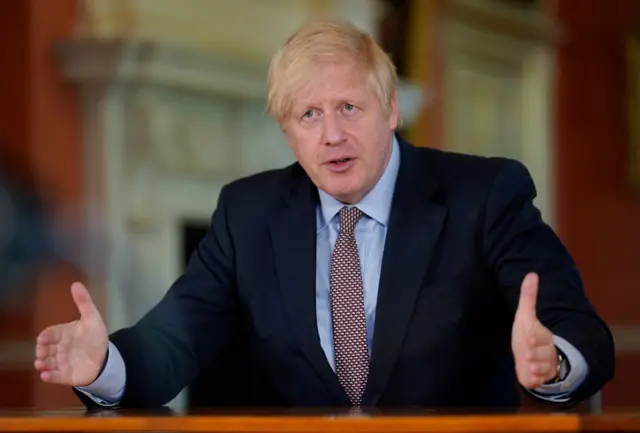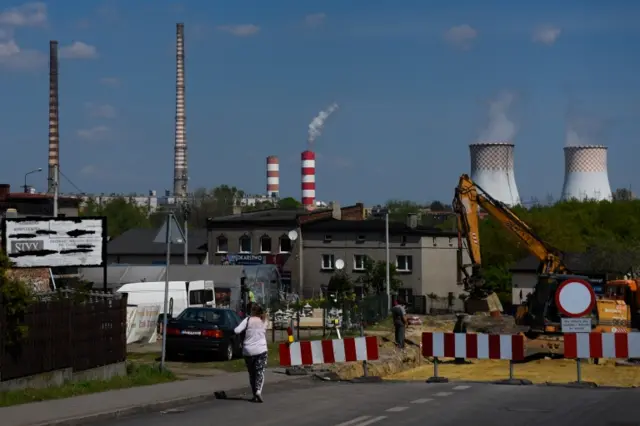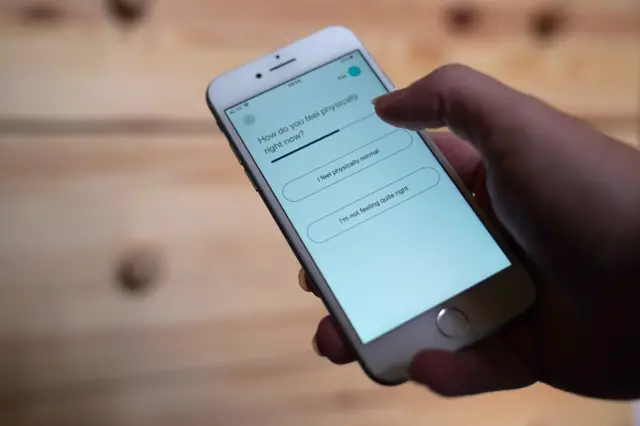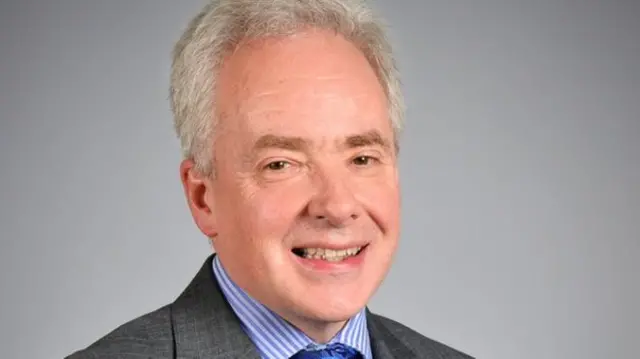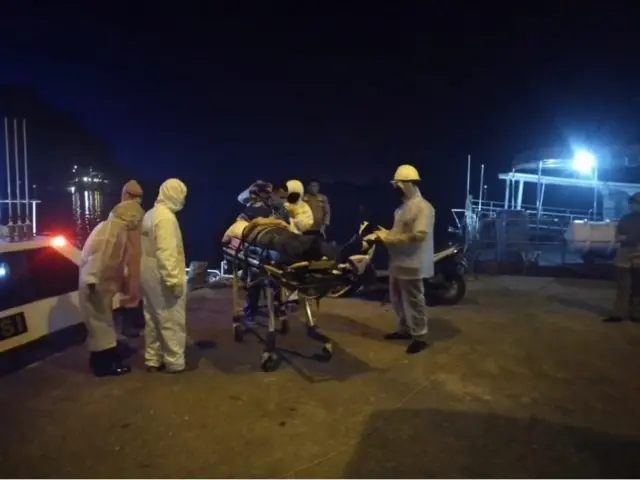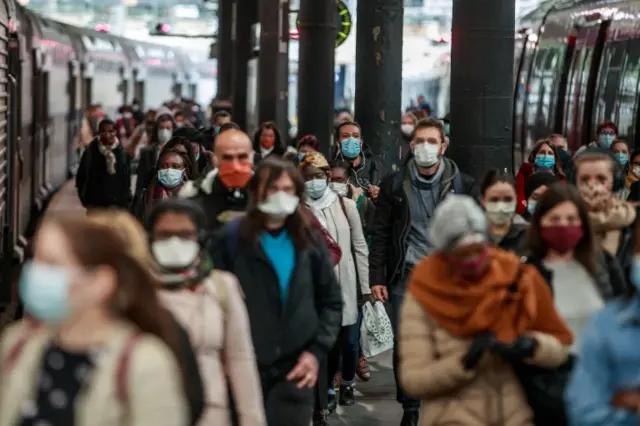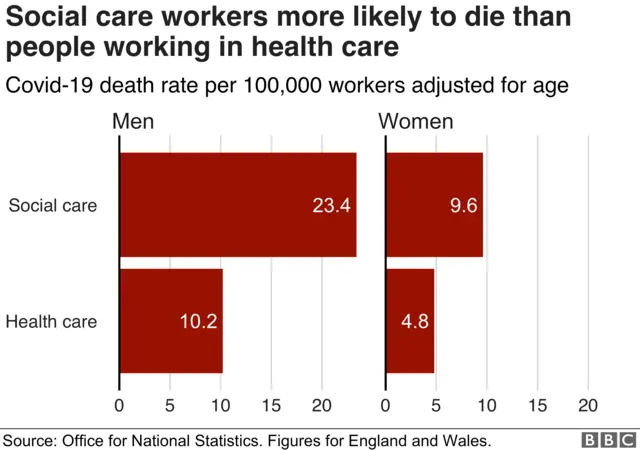More on new face coverings advicepublished at 14:11 BST 11 May 2020
For the first time, people in England are being advised towear face coverings, external in enclosed spaces where they come into contact with other people – including on public transport.
The guidance emphasises that people should use home-made coverings, not the specialist masks used by healthcare workers, for example.
Until now, the advice has been that only those working in health or care settings needed to cover their faces. The government had said there was little evidence that masks helped to stop the spread of the virus among the general public.
But this had been controversial, as other countries had already recommended the use of face coverings.
